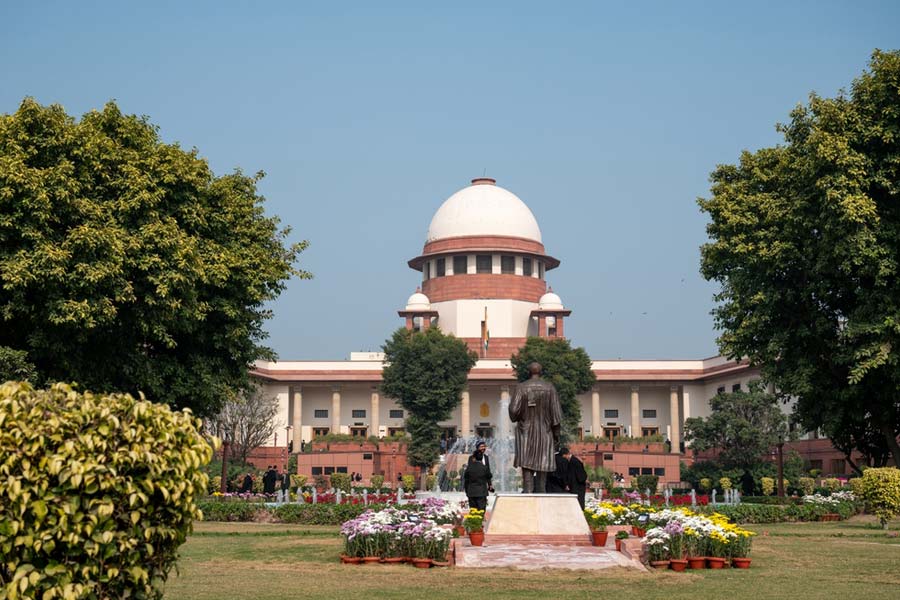A three-judge bench of the Supreme Court on Thursday decided to examine whether the Rohingya should be considered “refugees” or “illegal migrants”, and decided to pass appropriate directions to deal with the matter.
A bench of Justices Surya Kant, Dipankar Datta and N.K. Singh decided to settle the issue in the wake of some 22 petitions being filed before it mostly by individuals or organisations opposing any move to deport the Rohingya back to their country of origin, Myanmar.
The petitioners espousing the cause of the Rohingya were represented by senior advocate Colin Gonzalves and lawyer Prashant Bhushan, who told the bench that the court must examine whether the Rohingya who had been kept for prolonged periods in detention camps could be declared illegal foreign nationals.
Besides the issue of the Rohingya, some of the petitions also deal with alleged illegal immigrants declared foreign nationals by the foreigners’ tribunals in Assam.
The Centre was represented by additional solicitor-general K.M. Natraj.
However, the bench on Thursday said it would segregate the issues relating to the Rohingya and deal with them appropriately. “We will segregate the matters and first deal with the Rohingya.”
Bhushan told the court that several Rohingya declared foreigners were not being taken back by Myanmar, which raised the question whether they should be deported.
The bench framed the following issues for consideration:
- Whether the Rohingya are entitled to be declared refugees. If so, what protections are they entitled to?
- If they are not refugees, rather illegal entrants, whether the action of the governments to deport them is justified
- Even if they have been held to be illegal entrants, can they be detained indefinitely or are they entitled to be released on bail subject to conditions?
- Whether those not detained but are in refugee camps have been provided basic amenities like water, sanitation and education
- If they are legal entrants, whether the governments are entitled to deport them
Gonsalves told the court that some of the Rohingya had spent 15-16 years in Indian prisons.
The bench, however, clarified that it would only lay down general guidelines on the question of the State’s responsibility to deport illegal entrants.
“We can only lay down the general principles to be followed. Which country, where we won’t get into that,” Justice Surya Kant, heading the bench, observed.
Some of the petitioners had challenged the detention of Rohingya as a violation of their fundamental rights to life and equality guaranteed under Articles 21 and 14 and available to all persons in India, whether citizens or otherwise.
It was submitted that the Rohingya are described by the United Nations as the world’s most persecuted ethnic minority and had sought refugee status in India after fleeing in thousands from Myanmar following the escalating violence and genocide against them.
The petitioners had prayed for an interim application that during the pendency of the appeal, the court may direct the respondents to immediately release all Rohingya women and children in detention and in juvenile homes and jails.
However, the Centre, through solicitor-general Tushar Mehta and other law officers, had taken the stand that the “country cannot become the refugee capital of the world”.











